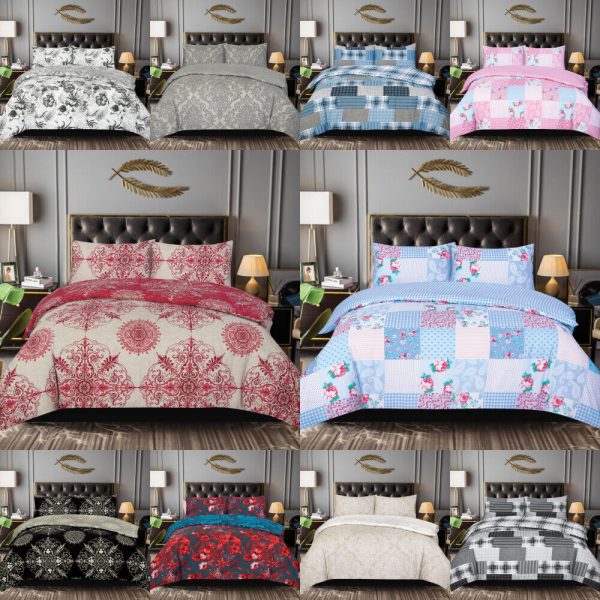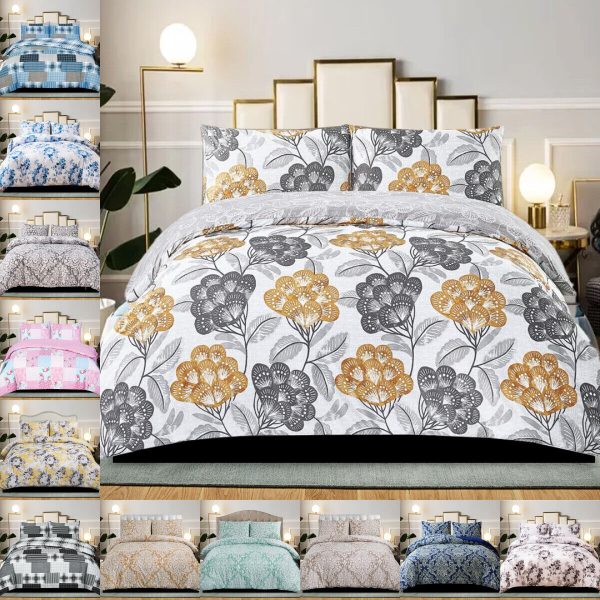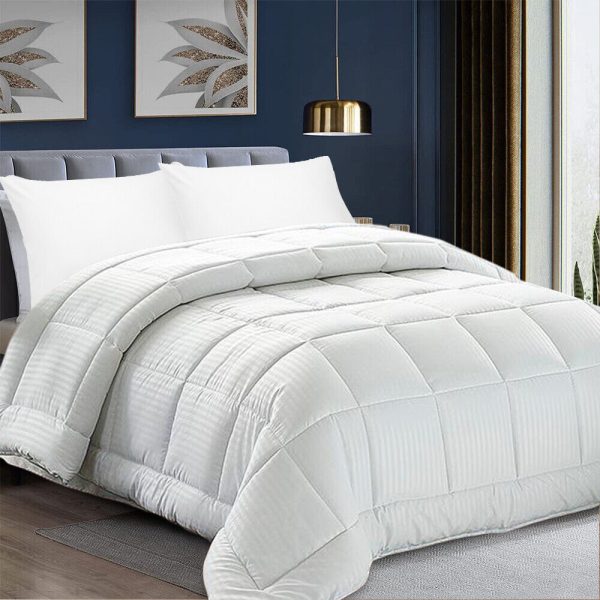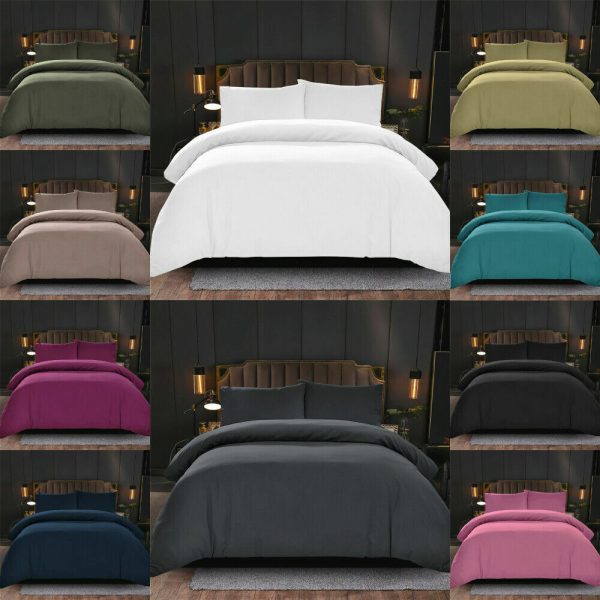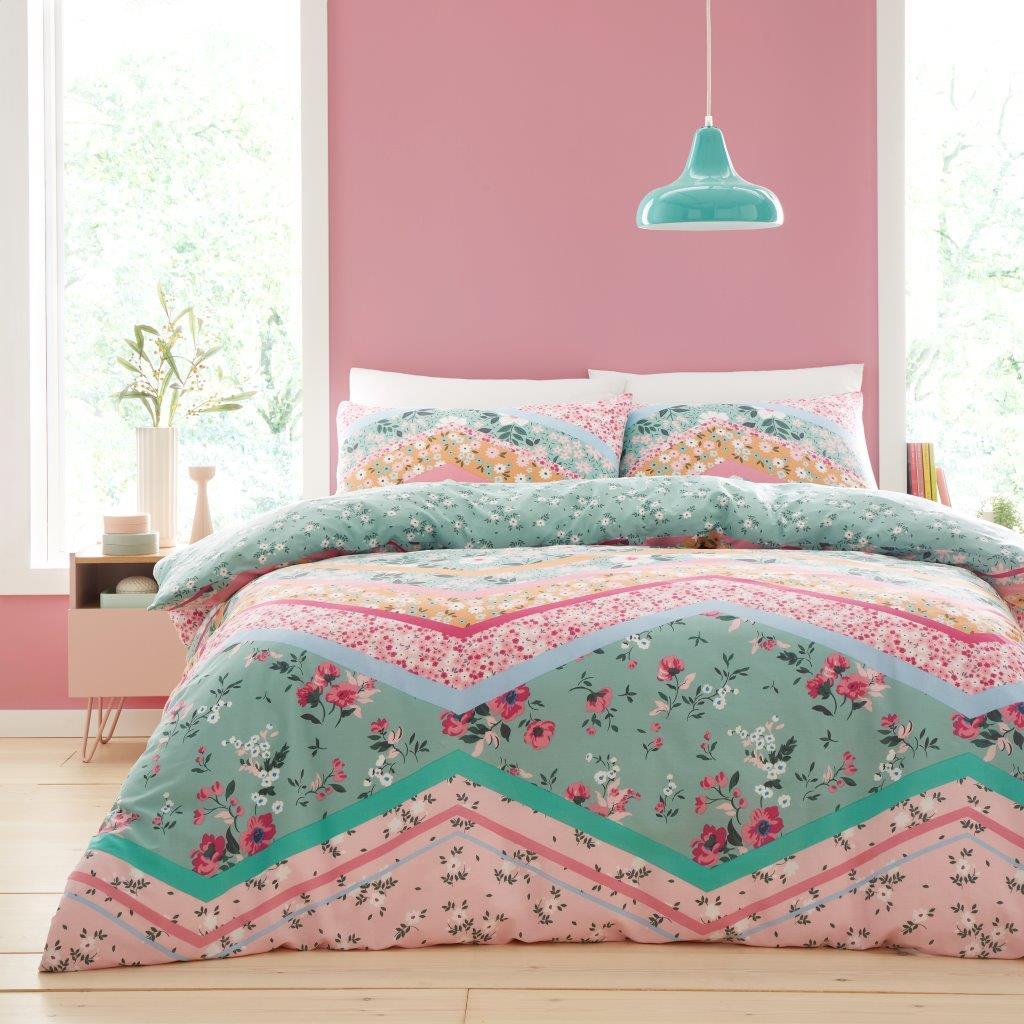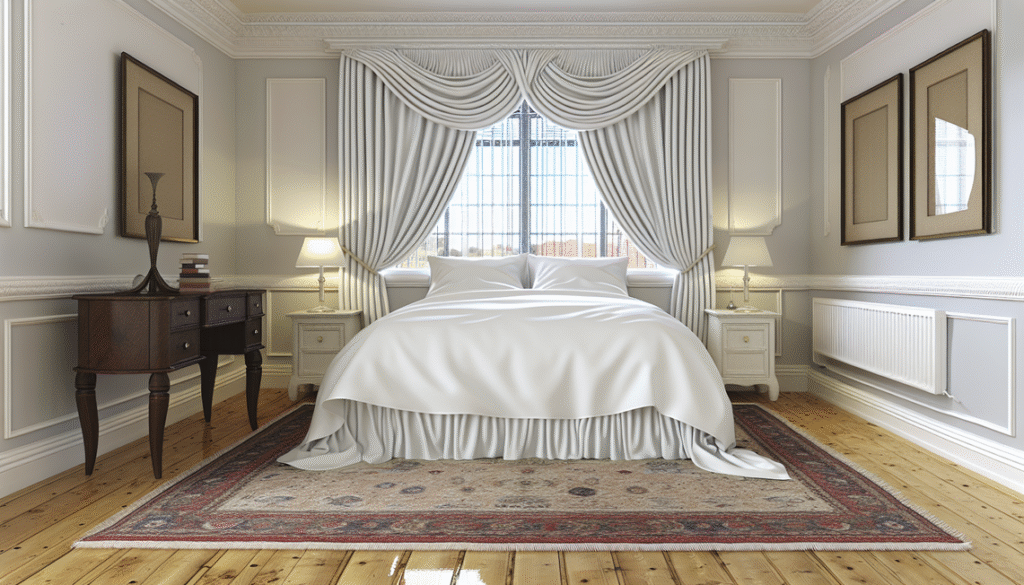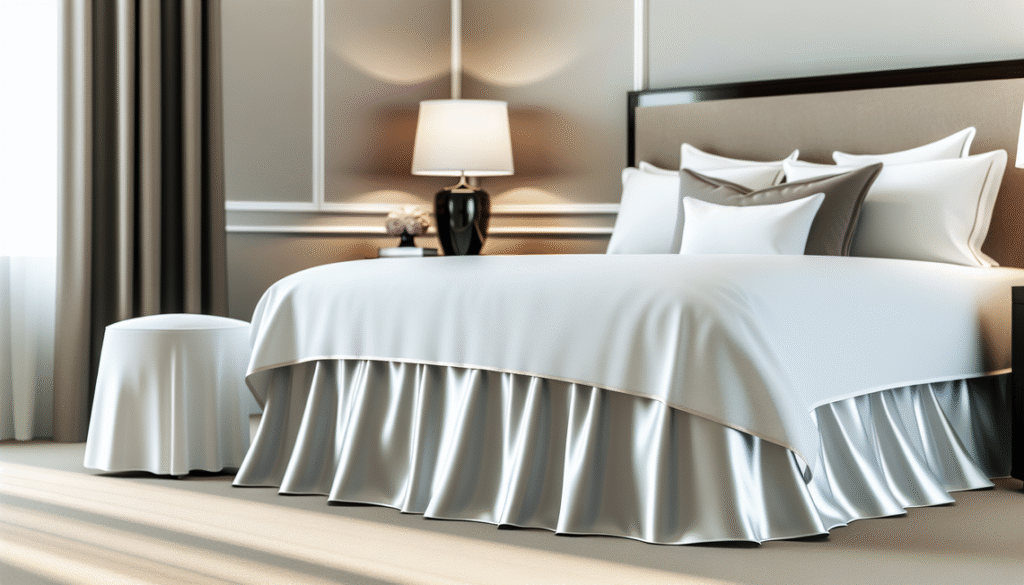Choosing the right duvet cover is paramount for creating a comfortable and inviting bedroom, particularly in the UK where seasonal weather shifts demand versatility. More than just an aesthetic choice, your duvet cover significantly impacts sleep quality, temperature regulation, and the longevity of your duvet. This comprehensive guide will help you navigate the myriad options available, ensuring you select the perfect duvet cover to suit every season and enhance your home comfort.
Why Selecting the Right Duvet Cover Matters for UK Homes
For homeowners across the UK, the duvet cover serves a dual purpose: it acts as a crucial layer of comfort and a stylish statement piece. Given the country’s temperate climate, which can swing from brisk, damp winters to surprisingly warm, humid summers, the material and design of your duvet cover play a vital role in regulating body temperature throughout the night. A well-chosen cover can prevent overheating during muggy summer nights or provide an extra layer of snug warmth in the depths of winter, contributing directly to a more restful and uninterrupted sleep experience. Beyond personal comfort, duvet covers offer essential protection for your duvet. They act as a barrier against dust, allergens, and general wear and tear, significantly extending the life of your bedding while allowing you to effortlessly update your bedroom décor to reflect changing seasons, moods, or design trends. Investing in quality duvet covers is an investment in both sleep health and home aesthetics.
Matching Duvet Covers to Seasonal Needs: What to Consider
Adapting your bedding to the UK’s dynamic climate is key to year-round comfort. When selecting a new duvet cover, consider these seasonal guidelines:
Winter Comfort: Prioritising Warmth and Insulation
During the colder, darker months, the focus shifts to warmth and cosiness. Opt for materials that offer excellent insulation, trapping heat to keep you snug and comfortable even on the chilliest nights. Fabrics with a soft, brushed finish are particularly inviting.
Summer Coolness: Embracing Breathability and Moisture-Wicking
UK summers, while not always scorching, can be humid and surprisingly warm, making breathability paramount. Look for lightweight, airy fabrics that promote airflow and effectively wick away moisture, preventing clamminess and ensuring a fresh, cool sleeping environment.
Spring & Autumn Versatility: Balancing Warmth and Airflow
These transitional seasons are often unpredictable, with fluctuating temperatures. A versatile duvet cover is essential, offering a balance of warmth for cooler evenings and sufficient airflow for milder days. Medium-weight fabrics that adapt well to changing conditions are ideal.
It’s also important to consider indoor heating and humidity levels, as these can significantly impact fabric performance. Materials that manage moisture well will help prevent that uncomfortable damp or clammy feeling, regardless of the season.
Guide to Common Duvet Cover Materials and Their Seasonal Benefits
Understanding the properties of different duvet cover materials is fundamental to tailoring your choice for seasonal comfort and personal preference. Here’s a detailed comparison of popular fabrics, many of which can be found in the RugStars duvet covers collection:
Duvet Cover Material Comparison
| Material | Seasonal Suitability | Price Range | Care Requirements | Key Benefits |
|---|---|---|---|---|
| Cotton | All seasons, especially spring & summer | £20 – £60 | Machine washable, tumble dry low | Breathable, durable, softens with use, hypoallergenic |
| Linen | Summer and transitional seasons | £40 – £90 | Machine washable, air dry preferred | Highly breathable, moisture-wicking, durable, naturally antimicrobial |
| Silk | Year-round, excellent for sensitive skin | £70 – £150+ | Hand wash or delicate cycle | Temperature regulating, hypoallergenic, gentle on skin and hair |
| Flannel | Ideal for winter | £30 – £70 | Machine washable, gentle cycle | Soft, warm, insulating, cosy texture |
| Synthetics (e.g., Microfibre) | All seasons, good for allergy sufferers | £15 – £50 | Machine washable, quick drying | Lightweight, wrinkle resistant, budget-friendly, often anti-allergy treated |
Each material offers unique advantages for different sleeping needs and environmental conditions. For instance, cotton is a perennial favourite due to its breathability and durability, making it an excellent choice for a variety of users. Linen excels in warmer climates due to its superior moisture-wicking properties, ensuring a cool night’s sleep. Silk, while a premium option, provides unparalleled temperature regulation and is highly beneficial for those with sensitive skin or allergies. Flannel is the go-to for maximum warmth and a cosy feel during the colder months, while synthetic options like microfibre offer a practical, low-maintenance, and budget-friendly solution that can suit various seasonal requirements.
Versatile All-Season Duvet Covers: Balancing Comfort Year-Round
For those who prefer a simpler approach and wish to avoid the hassle of swapping duvet covers with every season, all-season options provide an excellent solution for UK homes. These duvet covers are meticulously designed to offer a balanced comfort level that adapts to the nation’s varied climate throughout the year. High-quality cotton percale and light-weight linen blends are often the materials of choice for these versatile bedding essentials. Cotton percale, known for its crisp, cool feel and breathability, ensures you stay comfortable even during warmer spells, while still offering enough substance for cooler nights. Linen blends, with their natural temperature-regulating and moisture-wicking properties, are equally effective, keeping you cool when it’s warm and surprisingly cosy when temperatures dip. These materials often feature advanced treatments, such as mercerisation for cotton, which enhances durability, strength, and adds a subtle sheen to the fabric. Additionally, finely woven structures promote optimal airflow, which is critical for maintaining a comfortable sleeping temperature through unexpected changes in the UK weather. Opting for an all-season duvet cover streamlines your bedding choices without compromising on sleep quality or bedroom style.
Choosing the Perfect Duvet Cover: Practical Tips for UK Shoppers
Beyond material and seasonal suitability, several practical considerations will ensure you select the ideal duvet cover for your home and needs:
Accurate Sizing for UK Beds
Matching your duvet cover precisely to your duvet and bed size is crucial to avoid discomfort from excess fabric or inadequate coverage. Standard UK duvet cover sizes are:
- Single: 135x200cm
- Double: 200x200cm
- King: 230x220cm
- Super King: 260x220cm
Always measure your existing duvet before purchasing to ensure a perfect fit.
Understanding Thread Count
Thread count refers to the number of threads woven into one square inch of fabric. While often associated with luxury, a higher thread count doesn’t always mean superior comfort for every season. For most duvet covers, an optimal thread count between 200–400 offers an excellent balance of breathability, softness, and durability. Higher thread counts (e.g., 600+) can feel incredibly smooth and luxurious but may also trap more heat, making them less suitable for warmer seasons or those who tend to sleep hot.
Weave Types: Percale vs. Sateen
The weave of the fabric influences its feel and performance:
- Percale: Known for its crisp, matte finish and excellent breathability, similar to a high-quality shirt. It’s a great choice for those who prefer a cool and fresh feel.
- Sateen: Offers a smoother, silkier feel with a subtle sheen. While luxurious, its tighter weave can make it slightly less breathable than percale.
Secure Closures
Consider the type of closure that best suits your preference. Hidden buttons offer a neat, traditional look, while zip closures are often quicker and more secure, preventing the duvet from slipping out. Both options should be discreet and not interfere with your comfort.
Durability and Quality Construction
To ensure your duvet cover withstands frequent use and regular washing, especially according to typical UK cleaning practices, look for strong, even stitching and high-quality fabric. Reinforced seams and robust closures contribute to the overall longevity of the product, offering better value for your investment.
Maintaining Your Duvet Covers: Care and Cleaning Tips to Extend Longevity
Proper care is essential to keep your duvet covers looking fresh, feeling comfortable, and extending their lifespan. Adhering to these simple guidelines will help preserve the quality of your bedding for years to come:
Washing Instructions
Always consult the care label provided by the manufacturer. Most cotton and synthetic duvet covers can be machine washed at 40°C, which is effective for removing dirt, dust mites, and allergens without damaging the fabric. For delicate materials like silk or linen, a cooler wash (30°C) on a gentle cycle is usually recommended.
Drying Methods
For cotton and many synthetic blends, tumble drying on a low heat setting is generally safe. However, to prevent shrinkage and preserve the integrity of more delicate fabrics such as silk or linen, air drying is often the preferred method. Hang them outdoors on a line or indoors on a drying rack away from direct sunlight to maintain fabric strength and colour vibrancy.
Optimal Storage
When not in use, especially when swapping covers seasonally, store your duvet covers in a cool, dry place. Using breathable cotton storage bags can help protect them from dust and prevent the accumulation of moisture, which can lead to mildew or odours. Avoid storing in plastic bags long-term, as this can trap humidity.
Regular Rotation
Having multiple duvet cover sets and rotating them regularly is a simple yet effective way to extend the life of each cover. This practice reduces the wear and tear on individual sets, keeping them looking newer for longer and ensuring you always have a fresh set ready for your bed.
Frequently Asked Questions About Duvet Covers
Here are some common questions to help you make informed decisions about your bedding:
Q: How do I choose the right duvet cover size for my bedding?
A: Measure your duvet carefully and select a cover that matches its dimensions exactly. This prevents fabric bunching and ensures full, even coverage. Standard UK sizes are Single (135x200cm), Double (200x200cm), King (230x220cm), and Super King (260x220cm).
Q: What duvet cover materials are best for allergy sufferers?
A: Natural fibres like cotton and silk are excellent as they are naturally hypoallergenic and breathable, which helps to reduce dust mite accumulation. Synthetic microfibre covers with specific anti-allergy treatments are also highly effective options.
Q: Can I use one duvet cover all year round in the UK climate?
A: Yes, it is possible. For year-round comfort in the UK, choose a duvet cover made from a breathable, high-quality cotton or linen blend. These materials offer a good balance, providing warmth in cooler seasons and breathability during warmer periods without causing discomfort.
Q: How often should duvet covers be washed to maintain hygiene?
A: It is generally recommended to wash duvet covers every 1-2 weeks. This routine helps to maintain hygiene, remove accumulated dust, dead skin cells, and allergens. If you suffer from allergies or have pets that sleep on the bed, more frequent washing may be advisable.
Q: Are higher thread counts always worth the investment for duvet covers?
A: Not necessarily. While higher thread counts often indicate a softer, more luxurious fabric, they can sometimes reduce breathability, which might not be ideal for all seasons or for those who sleep hot. A thread count between 200-400 typically offers an excellent balance of comfort, durability, and breathability for year-round use.
For a full range of high-quality duvet covers suitable for every season and style, explore the extensive RugStars duvet cover collection, perfectly tailored for UK homes and designed to elevate your bedroom comfort.


